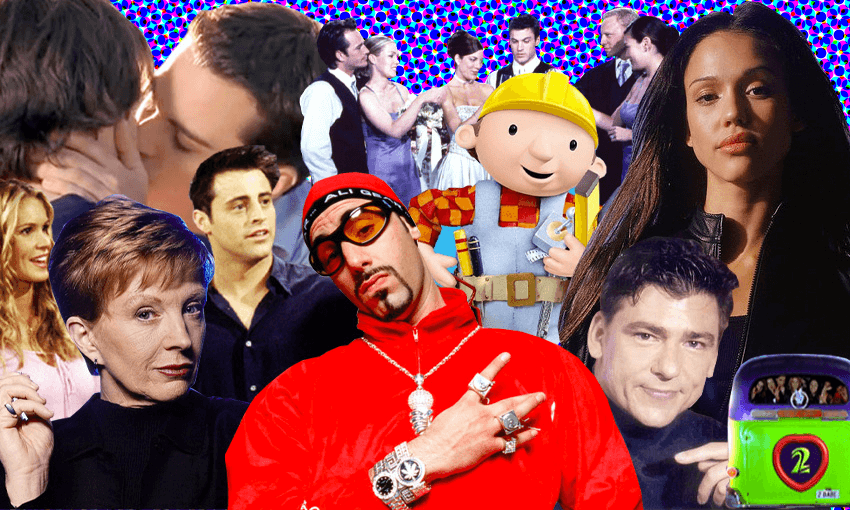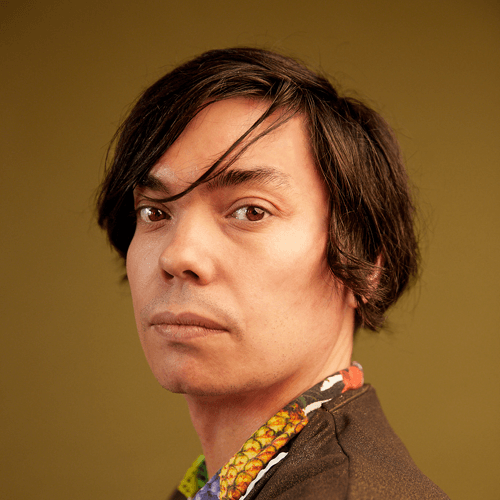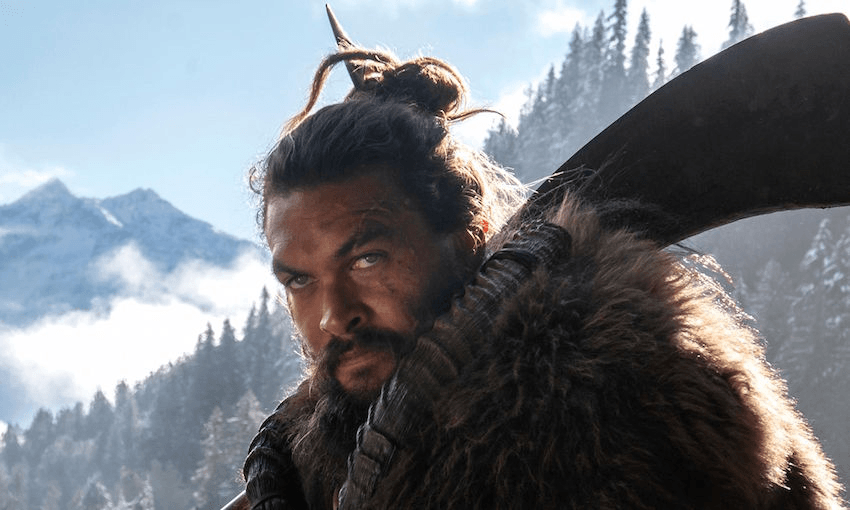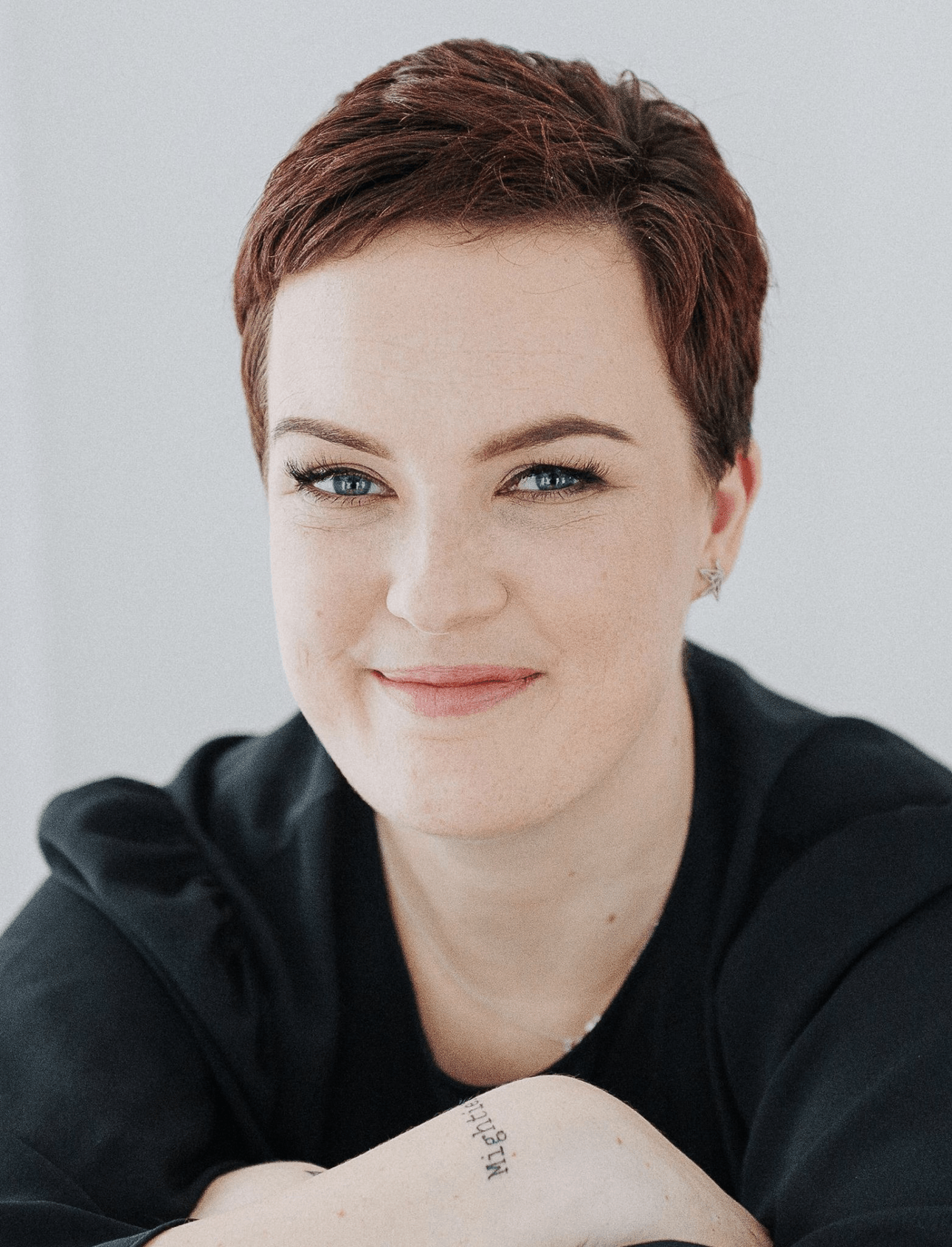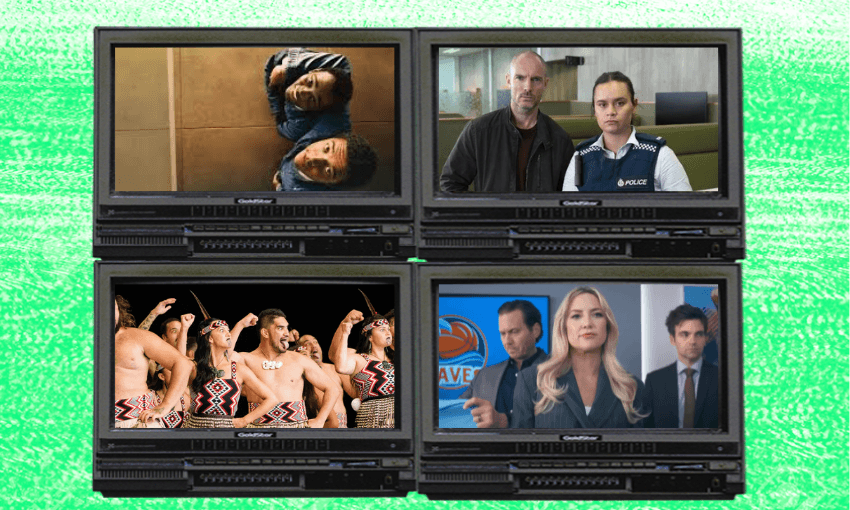In the year 2000 there was no Netflix or Amazon Prime or On Demand; the ‘too much TV’ era was still years in the future. So what did we watch instead?
Beverly Hills 90210 came to an end
The end of the 90s also signalled the end of Beverly Hills 90210, one of the defining dramas of that decade. It closed out its season with a viewing audience of over 25 million people in the US. To put that into context: The final episode of Game of Thrones was watched by just over 19 million people. This show was huge, guys.
US TV’s first gay male kiss – thanks to Dawson’s Creek
It wasn’t just the year that we were all obsessed with Dawson’s Creek star couple Pacey and Joey. It was the year that the same show gave us primetime television’s first gay male kiss between Jack McPhee and Ethan Brody, two names that couldn’t be more Dawson’s Creek if they tried. This was a groundbreaking moment, coming a full nine years after the first lesbian kiss on US network television, and a full three years after Ellen’s televised coming out, and deserves to be remembered as such.
The Sopranos, and the start of broadcast television’s decline
This was the year of The Sopranos, the show that taught us all to love terrible people so long as they were on a TV screen – and also the year that HBO truly started to dominate prestige TV. HBO had already started to chip away at broadcast television’s dominance with Oz and Sex and the City (give me that crossover), but it was with The Sopranos that the channel hit big. Though The Sopranos debuted in 1998, 2000 was the year that it really began to dominate, with James Gandolfini becoming the first actor on a cable show to win an Emmy for Best Actor in a Drama series. It remains one of the most acclaimed and scrutinised shows ever produced, which is remarkable considering it’s more than two decades old. The West Wing, that year’s Emmy winner for Best Drama, looks positively dusty now.
Cut to now and the tables are reversed: You’re lucky to find any award-winning drama on broadcast television, let alone on cable. It’s streaming or nothing now. In 20 short years, we’ve gone from Patricia Heaton winning an award for rolling her eyes at Ray Romano on Everybody Loves Raymond, to Phoebe Waller-Bridge winning the very same award for Fleabag, a show your coolest friends can’t/won’t shut up about. (It really is very good, though.)
Only wanna be with TV2
Before TVNZ2, there was Two. And we only wanna be with Two. It’s too bad that ‘TVNZ2’ doesn’t rhyme with anything.
The Mole
A cracker idea for a reality show, based on a Belgian format: A team works together on challenges both mental and physical to build up a large cash prize for the eventual winner. BUT, there’s a double agent in the team who is actively working against them. The team has to work out who is working against them, and eliminate them accordingly. Only one season of the show aired here, helmed by perennial host Mark Ferguson, and while you can watch the first episode on NZ on Screen, the rest of it is lost to time. Release the tapes someone!!!
Dark Angel
This is one you won’t remember, I guarantee. James Cameron’s first, and only, foray into fictional TV was a cyberpunk action-driven series that introduced Jessica Alba to the world. Alba played a cybernetically enhanced super-soldier who escaped from a military facility and then tried to live a normal life in… Seattle, of all places.
The show lasted two seasons before being unceremoniously cancelled, with Alba emerging more or less unscathed to become one of the more famous actresses of that decade despite not being in anything else of note. Except Honey. Which rocks.
James Cameron went on to make Avatar, and allegedly some sequels that may or may not ever come out.
Boston Public
Before Big Little Lies, but after Ally McBeal, Picket Fences, and during The Practice: There was… Boston Public. It was the black sheep of uber-showrunner David E. Kelley’s television empire, which reached its peak at around this time – with Ally McBeal, Chicago Hope, and The Practice dominating our screens. It was also, by a significant margin, the worst of his shows. Kelley’s sub-Sorkin dialogue worked wonders in the confines of a professional environment, but when put into the mouths of teenagers at a fictional Boston high school it came off false and strange.
Even worse, Kelley seemed to have no understanding of the school system, which is demonstrated nowhere better than the series finale, in which the school announces it is cutting all sports in favour of arts programmes. In what world?
A bunch of one-and-done shows you don’t remember
Shasta McNasty. Normal, Ohio. Bette. Brutally Normal. God, the Devil and Bob. Wonderland. Falcone. Battery Park. The Beat. D.C. Talk to Me. Then Came You. MYOB. Higher Ground. Secret Agent Man. Young Americans. Baby Blues. The War Next Door. Titans. City of Angels. The Michael Richards Show. Madigan Men. The $treet. Dot Comedy. The Fearing Mind. The Trouble with Normal. Daddio. Tucker.
If you remember these shows, you’re either a savant or a Russian sleeper agent who I’ve just accidentally activated. Good luck on your mission, comrade!
Elle Macpherson on Friends
Friends had a run of great guest stars, and didn’t often miss the mark with its casting. The one time it did, notably and at length, was with the multiple episode long arc featuring Elle Macpherson as Joey’s roommate and romantic interest. She was… not very good.
Also on this season of Friends were Reese Witherspoon as Rachel’s sister (sure!) and Bruce Willis as Rachel’s boyfriend, whose daughter was dating Ross. This is your reminder that the only thing about Friends that has aged well is Lisa Kudrow.
Survivor
It’s not the first reality show, not even close, but this is the one that changed everything. Reality shows were no longer just a curio, they were a part of mainstream culture. If you weren’t watching Survivor, you didn’t have anything to talk about around the watercooler, back when we had watercoolers.
Ryan Murphy’s first show crashes and burns
Now it seems Ryan Murphy can’t go a month without having a hit, but that wasn’t the case two decades ago with his first show: Popular, a show that couldn’t decide whether it was an earnest teen drama or a satire of a teen drama, and never found a real personality as a result. After a poorly rated second season, it ended on a cliffhanger – someone was hit by a car, someone else was pregnant, nobody was happy – and Murphy moved onto the cosmetic surgical pastures of Nip/Tuck. You can watch the whole thing on YouTube, but I truly cannot recommend it as anything other than a curio.
Street Legal
Before Outrageous Fortune, before Westside, there was Street Legal. Over four seasons, then an incredible feat for any local show, the nation followed Samoan lawyer Silesi (Jay Laga’aia) and his on-again, off-again girlfriend Joni (Katherine Kennard) as they made their way through dubious cases and situations in Ponsonby. You can watch the first episode on NZ on Screen, and find it holds up surprisingly well for a show from way back then.
The Weakest Link
The lasting legacy of this show is your least funny family member saying “You are the weakest link, goodbye” right through to 2005, whereupon they died or you stopped hanging out with them.
The Anne Robinson quiz show lasted for 1674 episodes, and is maybe the first instance of an audience falling in love with someone being mean to real life people, a trend which seemed to continue right up until Natalia Kills tried to cash in on it.
Bob the Builder
Can he fix it? Yes he can. Also, the lyric is ‘can we fix it’. Can he spawn a number one hit single up against Westlife? Yes, he also can, and yes he did. The show started in 1998, but 2000 was when the show exploded, along with that inexplicable hit single. (Bob also did the world the disservice of covering Lou Bega’s ‘Mambo No. 5’, and if I have to retain that information in my brain, then so do you. Enjoy.)
Da Ali G Show
It’s the show that brought Sacha Baron Cohen mugging and screaming into the public eye. Your mileage may vary on whether that’s a good thing or not. Donald Trump was, as you can see from the above video, on it one time.
Chris Warner returns to Shortland Street
It might sound like an urban myth, but there truly was a time when you couldn’t see Chris Warner on your television screen at 7pm. Galvin departed the show in 1996, which left New Zealand with four bleak Dr. Love-less years of television. Our drought ended with the 2000 Christmas cliffhanger, when Warner returned to announce to CEO Sofia Martinez that he was the new head of the hospital. And he’s never left our screens since.

